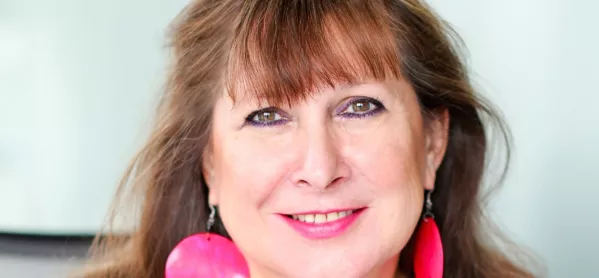Say it loud and proud: ‘I’m a woman and I’m bloody brilliant’

New Labour leader Jeremy Corbyn’s appointment of Lucy Powell to his shadow cabinet marks only the third time that two women will face each other in the Commons over education.
The last time was for a few months in 2001, when Theresa May filled the shadow role opposite Estelle Morris. The first was in 1967-69 and featured two big hitters: Margaret Thatcher and Shirley Williams.
Both were impressive women who had risen to power in the macho political environment of the 1960s. At that time, despite women making up more than half the population, there were only 26 female MPs. Compare that with the 191 today (which is still less than a third of the total number) and it makes their achievement even more remarkable.
It’s a similar story in schools, where the gender balance is equally disproportionate. The teaching workforce is 74 per cent female, yet women take only 65 per cent of headships; in secondary schools that figure is even worse at just 36 per cent.
Numerous factors are cited as holding women back, including sexism, both overt and covert. Schools may see themselves as havens of fairness and equality but society still has a long way to go. And it is, of course, from wider society that the governors who appoint our headteachers are recruited.
Motherhood is another of the reasons given. “Women still carry out the majority of childcare,” says superhead Dame Sally Coates in the cover feature of this week’s TES, out tomorrow. “This is the biggest factor in preventing them from applying for headship”.
The third big reason is the most troublesome of all: confidence. Women often feel they need to become the best classroom teacher they can be before putting themselves forward for leadership. Men, however, can frequently be far happier to take a punt. Women tend to be more reticent in voicing opinions and ideas, whereas many men are happy to shout even when they’re wrong, as just five minutes on Twitter will demonstrate. It is, therefore, heartening to see the birth of networking organisation #WomenEd on social media, which allows women to share experiences and ideas and lends them a loud campaigning voice.
All this has to go back to how we raise young women. We have to encourage them to be active, not passive; to be aggressive in pursuit of their ambitions; to be assertive and have a go and not strive for perfection; to aspire to be leaders, not Disney princesses. Because ultimately what it comes down to is an individual’s determination to succeed, in their own way, whatever the obstacles.
Margaret Thatcher went on to lead the country. Her Commons adversary is quite clear about the reason for her success. “She did very little by being a woman, she did it by being herself,” Baroness Williams has said since.
And that is why it is important to hear how successful women such as Dame Joan McVittie, Linda Emmett and Keziah Featherstone - all featured in this week’s edition - did it for themselves.
Whatever one thinks of Baroness Thatcher, there’s no denying the mark she made on history. She may not have seen herself as a feminist but her achievements spoke volumes to young women (including this one) and inspired them to dare to dream that one day they could be leaders too.
ann.mroz@tesglobal.com
Keep reading for just £1 per month
You've reached your limit of free articles this month. Subscribe for £1 per month for three months and get:
- Unlimited access to all Tes magazine content
- Exclusive subscriber-only stories
- Award-winning email newsletters



